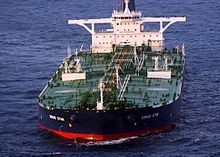Oil powers higher as produces flock to Doha for crucial meet
16 Feb 2016
Crude prices surged to their highest levels in more than a week in early trade today as representatives of oil producers, including Russia and Opec member nations gathered at the Qatari capital of Doha, in a key meeting to discuss output cuts to reverse the steady fall in oil prices.
 US crude rose more than 3 per cent early on Tuesday to trade back above $30 a barrel, on the back of a more-than-12-per cent surge on Friday powered by reports of an impending deal among Opec and non-Opec oil producers.
US crude rose more than 3 per cent early on Tuesday to trade back above $30 a barrel, on the back of a more-than-12-per cent surge on Friday powered by reports of an impending deal among Opec and non-Opec oil producers.
US sweet light crude was up $1.43 at $30.87 by 0330 GMT as the market reopened following a shortened holiday session. Crude futures rose as much as $1.50, or 5.1 per cent, to $30.94, the highest since 8 February, building on Friday's more than 12 per cent surge.
North Sea Brent crude for April delivery was up $1.21 at $34.60 a barrel. It rose as high as $34.72, the highest level since 5 February, after rising 11 per cent on Friday.
Top oil officials from top oil producers Saudi Arabia and Russia besides several key Opec members will meet at Doha on Tuesday for their highest-level discussion, which many expect, would lead to a potential deal to tackle a devastating supply glut.
Saudi Arabia had pushed for a global deal to curb output from Opec and non-Opec nations and though Russia had agreed to participate, much will depend on whether the two oil majors would properly follow through on their pledge to cut oil production.
Doha talks will bring together Saudi oil minister Ali al-Naimi and his Russian counterpart Alexander Novak, the two figures who must reach an accord for any coordinated global action to hold oil production.
Iran will be absent at the Doha talks, but is expected to show some restraint under any accord, perhaps lowering its target of pumping an additional 1 million barrels per day.
Russia, which is outside the Opec and is the world's top crude oil producer, has long refused to cut output, saying it was technically challenging for the country to reduce production and that its industry was competitive enough at any given price.
However, several Russian officials, including Novak, have recently signalled that Russia was not averse to cooperation with Opec.
Igor Sechin, the head of Russia's state oil producer Rosneft, and a close ally of President Vladimir Putin, also said last week that it would make sense for all producers to remove around 1 million barrels per day from the market.
Venezuela's oil minister Eulogio Del Pino, who has in recent weeks been visiting major oil producers to rally support for the idea of "freezing" production, will also be attending the Doha talks.
While the exact agenda for today's meeting is unclear, there is now a growing consensus among Opec that a decision must be reached on how to prop up prices.
The meeting comes 18 months after the market slump that pushed down oil prices below $30 a barrel for the first time in over a decade.


















